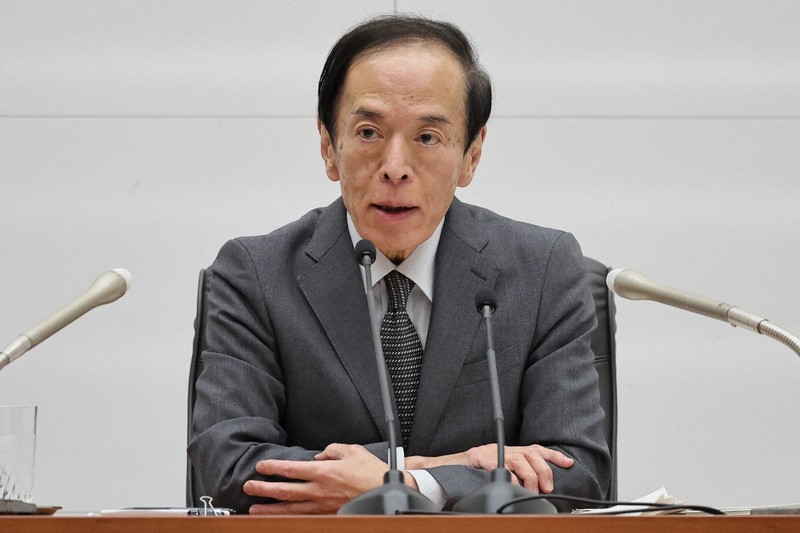Governor Kazuo Ueda stated on Tuesday that the Bank of Japan can take its time assessing market and foreign economic developments. He implied that the central bank is not in a hurry to raise interest rates further.
Ueda reaffirmed that the BOJ will hike interest rates if underlying inflation accelerates toward its 2% target. This indicates the institution’s stance to gradually raise borrowing costs from near-zero levels remains unchanged.
However, he issued a warning about the outlook’s hazards, citing erratic financial markets and doubts about the possibility of a soft landing for the US economy.

In an address to business leaders in the western Japanese city of Osaka, Ueda stated, “We must conduct policy in a timely, appropriate fashion without having any pre-set schedule in mind, taking into account various uncertainties.”
According to Ueda, since August, the yen’s “one-sided declines” have reversed, greatly reducing the likelihood of an inflation overshoot by slowing the rate of increase in import prices.
“We need to scrutinize market moves and overseas economic developments behind them in setting monetary policy. We can afford to spend time doing this,” he said.
The comments reflect the BOJ’s growing concern over slower global growth and currency increases impacting Japan’s export-driven economy. Inflationary risks now take a backseat to these issues.
Ueda’s remarks followed the BOJ’s policy meeting on Friday. The board unanimously decided to keep short-term rates at 0.25%.
Ueda emphasized that rising salaries were supporting consumption and driving up service-sector pricing. He noted that overall domestic economic circumstances were aligning with the BOJ’s prediction.
He predicted that “underlying inflation is likely to continue rising” and that wage growth would likely last into the next fiscal year and beyond. This suggests that Japan is on course to satisfy the necessary conditions to raise interest rates even further.
Ueda emphasized the need to closely examine emerging foreign concerns. He highlighted the ambiguity surrounding the potential impact of the Federal Reserve’s previous aggressive interest rate hikes on the American economy.
In addition, Ueda said that financial markets were still “somewhat unstable,” highlighting the necessity of stable currency movements that are consistent with economic fundamentals.
“For the time being, we will monitor with utmost vigilance financial market developments,” he stated.
The BOJ ended negative interest rates in March, marking a historic shift from a ten-year stimulus program aimed at sparking inflation and economic growth. In July, it raised short-term rates to 0.25%.
As many other central banks decreased interest rates following strong monetary policy tightening to confront excessive inflation, Japan began its rate-hike cycle.
For example, in response to weak labor market statistics last week, the Fed reduced interest rates by half a percentage point, starting an expected round of rate cuts.
Click here for more news on Banking.

